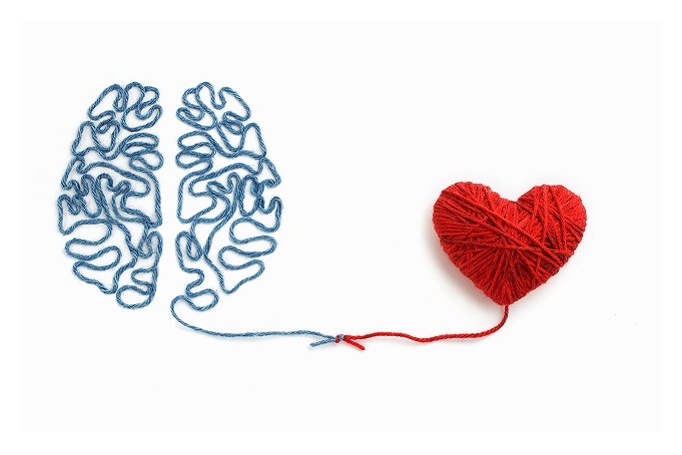Depression is not just a attitude disorder; it can also impact physical health, including an increased risk of heart disease. Depression, a mental health condition, can significantly increase the hazard of heart disease, a foremost cause of death worldwide, according to research, despite its often-overlooked connection to mental health. This blog post explores the link between depression and heart disease, revealing the mechanisms that link the two and providing tips on protecting your Heart. It also elaborates on how the German Heart Centre in Dubai will assist you.
Factors Linked to Depression and Heart Disease:
- Inflammation: Depression is linked to increased inflammation, which damages blood vessels and promotes arterial plaque accumulation, a critical factor in heart disease development. Chronic stress hormones, often a component of depression, can raise blood pressure, narrow blood vessels, and increase the risk of hypertension and atherosclerosis. This inflammatory response, which can damage blood vessels, is a common thread linking depression to heart disease.
- Unhealthy lifestyle: Depression often leads to unhealthy behaviors similar to smoking, overeating, and lack of physical activity, which are threat factors for heart disease. These habits can create a vicious cycle that can harm overall health. Individuals with depression may be less motivated to engage in healthy activities, compounding their risk. Therefore, it is crucial to address and manage depression to improve overall health.
- A Vicious Cycle: Depression and heart disease can create a vicious cycle, with depression leading to social withdrawal and isolation, reducing access to social support, and a higher risk of heart disease. This cycle is further exacerbated by unhealthy behaviors like smoking, overeating, and deficiency of physical activity, known risk factors for heart disease.
- Stress Hormones: Depression and stress are closely linked and can negatively impact the Heart. Chronic stress, often related to depression, triggers the issue of stress hormones like cortisol and adrenaline, which can increase blood pressure, narrow blood vessels, and increase the risk of hypertension and heart disease. Therefore, managing stress is crucial for maintaining a healthy heart.
- Reduced physical activity: Depression can key to decreased motivation and energy, resulting in reduced physical activity. Regular exercise is vital for heart health, and a sedentary lifestyle can evolution the risk of heart disease. Therefore, it’s essential to uphold a healthy lifestyle to combat depression.
- Sleep Disturbance: Depression often leads to sleep disturbances, including insomnia and disrupted sleep patterns. Poor sleep quality and duration are related to an increased risk of heart disease, highlighting the importance of maintaining a healthy sleep routine.
- Psychological Factors: Depression can lead to hopelessness, decreased motivation to maintain physical health, poor medical treatment adherence, and neglect of cardiovascular health due to psychological factors, affecting the overall well-being of individuals.
- Shared Biological Factors: Researchers suggest that shared biological factors, such as alterations in neurotransmitters and the autonomic nervous system, may contribute to depression and heart disease. These factors may influence the overall health of individuals.
- Social Isolation: Depression often leads to social withdrawal and isolation, negatively impacting heart health. Strong social connections are linked to a lower risk of heart disease while a lack of social support increases the risk.
- Medication Side Effects: Certain depression medications may cause side effects impacting heart health, including blood pressure or heart rate changes, necessitating careful monitoring by healthcare professionals.
Tips To Protect Your Heart:
Taking proactive steps to manage your mental and cardiovascular health is vital if you or someone you love is struggling with depression. Here are some actions to think about:
- If you’re depressed, don’t be afraid to get treatment. Effective therapies, such as counseling and medication, may lesser the risk of cardiovascular disease and improve mental health.
- Make heart-healthy decisions, including eating a balanced diet, exercising frequently, and avoiding smoking and drinking too much alcohol.
- Create a support network by contacting friends and family or considering joining a support group. Both mental and cardiovascular health may be significantly improved by having a solid support system.
- If you have a cardiovascular issue, visiting a heart specialist is essential.
Conclusion:
Depression and heart disease are interconnected, affecting mental well-being and heart health. Addressing depression improves mental well-being and protects the Heart against cardiovascular disease. The German Heart Centre Dubai is a renowned medical institution in Dubai, UAE, specializing in cardiovascular care and treatment. Our Heart specialist in Dubai can guide individuals in managing depression and promoting heart health. Prioritizing mental and Heart health, seeking treatment, adopting a healthy lifestyle, and working carefully with healthcare providers are essential.

